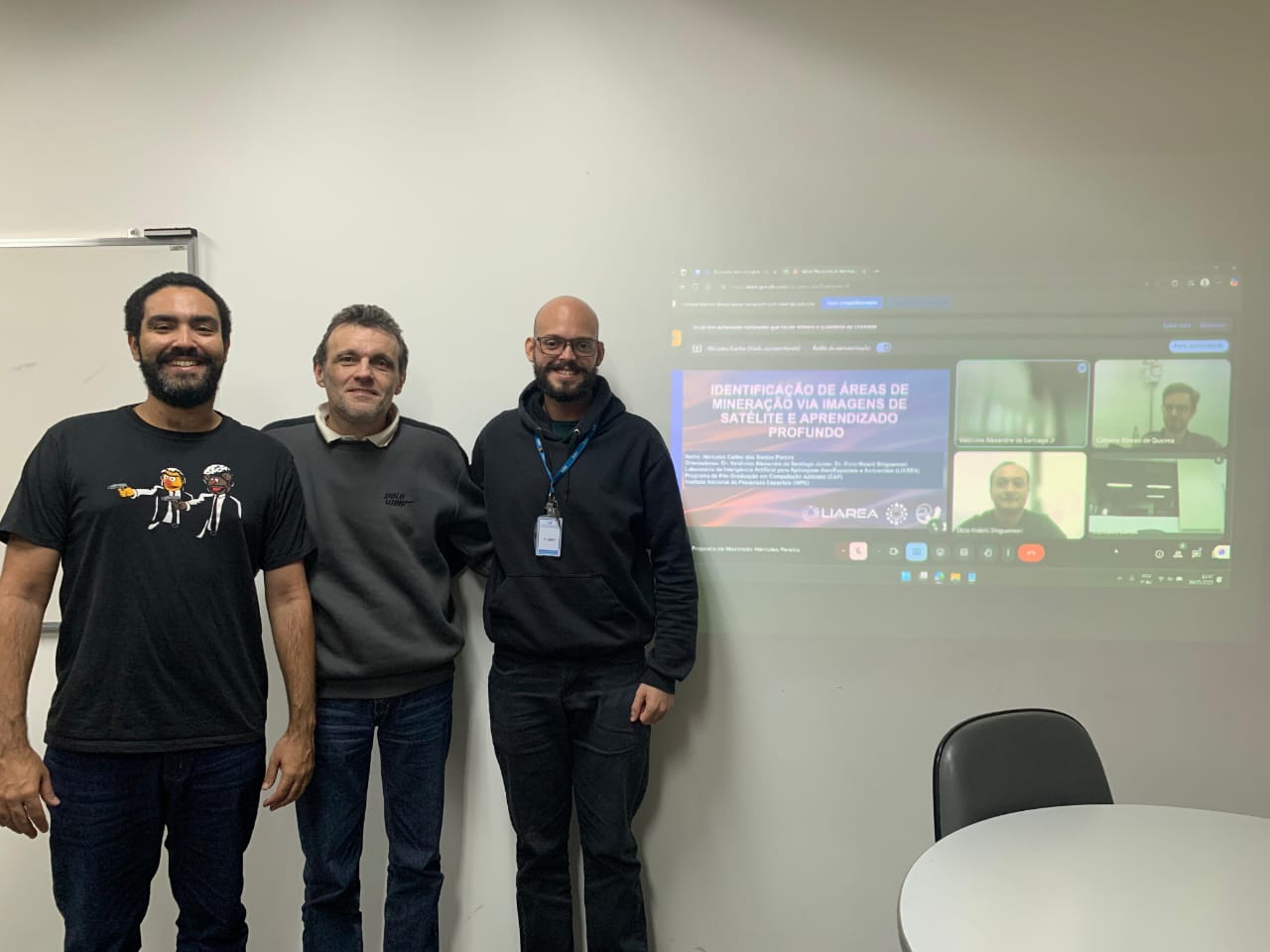Hércules Carlos dos Santos Pereira, a graduate student representing INPE, successfully presented his master's proposal titled "Identification of Open-Pit Illegal Mining Areas in Brazil Using Deep Learning and Change Detection." The presentation focused on the severe environmental impacts of illegal mining, which pose significant risks to human health due to mercury contamination, affecting soil, water, and air, and endangering indigenous communities, urban populations, and ecosystems.
The proposed research aims to address a gap in studies related to illegal mining by considering a large-scale time series for identifying illegality, as well as overcoming challenges associated with high-resolution imagery and regional generalization. The master's dissertation introduces a methodology that involves developing a database of mining areas across several states in Brazil, including Minas Gerais, Pará, Amazon, and Goiás. Sentinel-2 satellite images are used to support binary change detection tasks over a seven-year time period.

From left to right: Dr. Leonardo, Dr. Valdivino, Hércules, Dr. Gilberto, and Dr. Elcio
Deep learning models are applied to detect changes in the landscape, with the initial objective of evaluating the feasibility of using these models for change detection. The dataset is updated to include various classes, such as pit expansion, remaining vegetation, tailing dams, and other structures and buildings. Additional data from the National Mining Agency (ANM) and the Brazilian Institute of Geography and Statistics (IBGE) are incorporated to assess the legality of these changes. Initial results using the U-Net and Siamese Network models showed that U-Net outperformed the others, making it a promising candidate for solving this problem in the multi-class context.
The defense was supervised by Valdivino Alexandre de Santiago and Elcio Shiguemori, with members of the examining committee including Gilberto de Queiroz and Leonardo Santos. Their expert feedback and evaluation of the proposal contributed significantly to the success of the defense.

